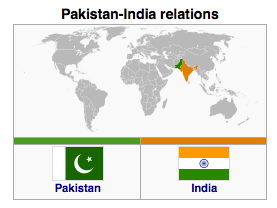Ghulam Nabi Fai And The ISI – Analysis
By IPCS
By Radha Vinod Raju
No one in India was surprised when Syed Ghulam Nabi Fai was arrested by US authorities in July this year on the grounds of colluding with the ISI to influence American opinion on the Kashmir issue. In fact, according to informed views in India, the US government was aware of Fai’s connections with the Pakistan government much earlier, and the timing of the arrest of Fai only confirmed the downward spiral of US-Pakistan relations. The FBI arrested Ghulam Nabi Fai on 19 July 2011 for allegedly working secretly for Pakistan’s ISI to lobby and influence the US government on the Kashmir conflict, in violation of the Foreign Agents Registration Act.
Fai was born in Badgam district of Kashmir, and was an early sympathizer of the Jamaat-e-Islami of Kashmir. He did his graduation from Srinagar’s Sri Pratap College and his Masters from the Aligarh Muslim University. After a stint in Saudi Arabia, he moved to the US in 1977 and got his PhD in mass communications from Temple University, Pennsylvania. He became a US citizen in 1990. There are reports that he was a member of the Jamaat-e-Islami during his college days and knew Muhammad Yusuf Shah aka Syed Salahudin, Chief of the Hizbul Mujahideen. His arrest and conviction has been condemned by Syed Ali Shah Gilani, leader of the hard line Hurriyat faction, which would confirm the above background.

It may be recalled that the Pakistani Army and the ISI had initially supported the Jammu Kashmir Liberation Front, which was spear-heading the movement for independence. The attacks on the Kashmiri Pandits, and other selected targets in Kashmir in 1989-90 by the militants of the JKLF were the brainwork of the ISI. When they could not influence the aim of the JKLF, which was independence for Kashmir, the ISI stopped funding, training and arming their cadres. The ISI thereafter focused on training and arming the Hizbul Mujahideen, which was the militant wing of the Jamaat-e-Islami, and whose aim was to merge Kashmir with Pakistan. The attack on the JKLF cadres by the Hizbul Mujahideen in the early 1990s was to eliminate them from the scene completely on account of the ideological differences.
The funding of Ghulam Nabi Fai, a Kashmiri from Budgam and a US citizen, needs to be seen in this background. If the ISI has been funding him all this while, it can only be because he was playing their game, and not because he was pursuing the so-called cause of Kashmir’s independence. Fai was charged along with a Pakistani American associate named Zaheer Ahmad for getting illegal funding for the Kashmir American Council from Pakistan. Neil MacBride, the attorney handling Fai’s case, said that Fai “is accused of a decades-long scheme with one purpose – to hide Pakistan’s involvement behind his efforts to influence the US government’s position on Kashmir, his handlers in Pakistan allegedly funneled millions through the Kashmir Center to contribute to U.S. elected officials, fund high-profile conferences, and pay for other efforts that promoted the Kashmiri cause to decision makers in Washington.” “For the last 20 years, Mr. Fai secretly took millions of dollars from Pakistani intelligence and lied about it to the U.S. government,” MacBride said. “As a paid operative of ISI, he did the bidding of his handlers in Pakistan while he met with US elected officials, funded high-profile conferences, and promoted the Kashmiri cause to decision-makers in Washington.” He was reportedly directed by the ISI and was in touch with them 4000 times in the last 3 years. The prosecutors also alleged that Kashmiri American Council was run by elements of Pakistani government including the ISI and that Fai had received at least US$4 million from the government of Pakistan.
In a plea bargaining agreement, Fai admitted that he routinely submitted his strategy plans and budgets to ISI, specifically to a contact named Javeed Aziz Khan, also known as ‘Brigadier Abdullah’. As per reports, Khan used to chastise Fai for making decisions without the ISI’s approval. Reports also indicate that Fai admitted that in December 2008, he had submitted a plan to the ISI outlining his strategy to secure congressional support for pressuring the White House to support Kashmiri independence. As he planned the agenda for his 2009 Peace Conference, Khan sent Fai a list of 18 suggested topics. Of the 10 sessions eventually included in the conference agenda, six were taken directly from Khan’s suggestions. No further proof is needed of Ghulam Nabi Fai’s close working relationship with the ISI. He took US citizenship in 1990, at the height of the anti-India movement in Kashmir. What needs investigation is whether he took the US citizenship on the ISI’s bidding to strengthen their case through an Indian-born Kashmiri. Dawood Gilani had changed his name in 2006 to David Headley similarly on the ISI’s bidding to enable him to work for them under cover in India.
Radha Vinod Raju
Distinguished Fellow, IPCS and Former Director General, National Investigation Agency (NIA)
email: [email protected]
